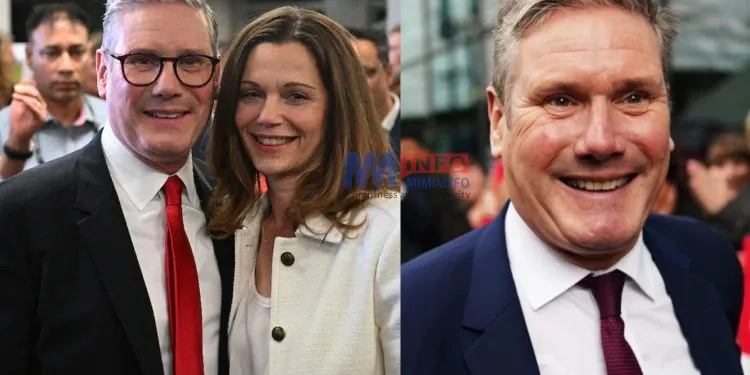Keir Starmer has emerged as the new Prime Minister of the United Kingdom following a remarkable electoral victory by the Labour Party in the general election. With five seats yet to be declared, Labour has already secured an impressive 411 seats, well exceeding the 326 seats needed for a majority. This resounding victory marks a significant turning point in British politics, with the Conservatives experiencing their most devastating loss to date.
Speaking at Royal Festival Hall in London, Starmer addressed supporters, expressing his joy and acknowledging the significance of Labour’s victory. “People will wake up to the news of a Labour victory and Tory defeat, feeling relieved that a weight has been lifted and a burden has finally been removed,” Starmer declared. The speaker made a promise of initiating a new era of change, emphasising the importance of national renewal and expressing a commitment to rebuilding the country. However, he recognised the difficulties that lay ahead, emphasising that the journey towards transformation would be far from simple.
Rishi Sunak, contemplating the disastrous night for the Conservatives, took ownership of his party’s abysmal showing at the polls. This election has been a significant blow to the Conservative Party, as several prominent figures, including former Prime Minister Liz Truss, have lost their seats.
The extent of the Conservative Party’s defeat became apparent as prominent figures including Jacob Rees-Mogg, Alex Chalk, Gillian Keegan, Johnny Mercer, Penny Mordaunt, and Grant Shapps were unsuccessful in their bids to win their respective constituencies. Despite retaining his seat in Braintree, Home Secretary James Cleverly used the opportunity to criticise the Reform Party, claiming that their proposed solutions to challenging problems were oversimplified and lacking depth.
Ed Davey’s Liberal Democrats have made a strong comeback, positioning themselves to become the third largest party in the House of Commons with a projected 68 seats. This marks a significant improvement from their previous performance in 2019. The Scottish National Party (SNP), on the other hand, had a challenging night, with a loss of 37 seats and only managing to secure eight MPs, as Labour made significant gains in Scotland.
The Green Party of England and Wales successfully achieved their objective of securing four seats, as co-leaders Carla Denyer and Adrian Ramsay are poised to join parliament. Meanwhile, Reform UK, led by Nigel Farage, had a surprising impact in the elections. They managed to secure four seats, with Farage himself winning in Clacton. This success had an effect on the Conservative vote, chipping away at their support.
Labour’s resounding triumph did face a couple of obstacles. Independents running on pro-Palestinian platforms claimed victory in three seats, while the party was unable to prevent Jeremy Corbyn from winning as an independent candidate. In Chingford and Woodford Green, there was a selection mishap that led to a split vote between Shama Tatler and former candidate Faiza Shaheen. As a result, Iain Duncan Smith was able to hold onto his seat by a narrow margin of just 79 votes.
In Northern Ireland, Sinn Féin has emerged as the largest party, marking a significant shift in the political landscape. Meanwhile, Plaid Cymru has made gains by securing four seats in Westminster, demonstrating their growing influence. It is worth mentioning that George Galloway lost his Rochdale seat, which he had previously won in a byelection earlier this year.
With the Conservatives facing a crushing defeat after more than a decade in power, it appears that Keir Starmer’s Labour Party is ready to guide the nation into a fresh chapter. “Change starts now,” Starmer declared, as Britain moves towards a Labour government in the midst of significant political upheaval.



